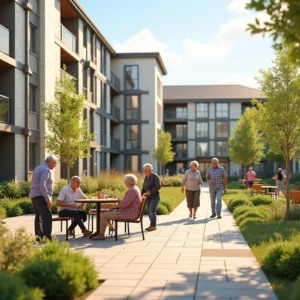If you are a family member of someone with Parkinson’s disease, there are several things you should know before joining a support group. While you may be able to find one online, there are also local groups that are located near you.
Contents
Finding a Support Group
If you’re a care partner, friend or family member of someone with Parkinson’s, you may find that a support group is invaluable. Not only will it be a source of comfort and information, but it can also help you cope with the symptoms of the disease.
Support groups can be found online and in person. The Parkinson’s support group for family members options are particularly beneficial because they allow you to participate at your convenience.
In-person support groups can be held at a church, hospital or community center. Various organizations, including the Parkinson’s Foundation, host these meetings. Some meetings are free to attend, while others charge a nominal fee.
Whether in-person or online, a Parkinson’s support group can be a great source of encouragement and information. While your local doctor or neurologist will probably be able to refer you to a group, you can also start one yourself. It’s also a great way to meet other people who have Parkinson’s and learn from their experiences.
During your first few meetings, it’s a good idea to have a leader or organizer who can guide the group. It’s also a good idea to schedule guest speakers. These guests can be neurologists, physical therapists, or other health professionals. They can discuss aging in place, exercise classes, or dietary plans.
Preparing for Caregiving
Caregiving for a loved one with Parkinson’s disease is difficult, but a support group can help. Before joining a support group, however, caregivers should first prepare themselves. This includes taking care of their health and assessing their own needs.
One of the best ways to cope with caring for a loved one with Parkinson’s is to talk about your feelings with other people who have been through the same experience. A therapist can be a helpful resource for helping you to work through your emotions.
Another way to reduce stress and find comfort is to exercise. A massage can also relieve stress. However, checking with your doctor before beginning any exercise program is essential. It’s crucial to maintain your health to provide the best care possible.
Being a caregiver is physically and emotionally draining. But it can also be deeply satisfying. In addition, a support group can be a great place to connect with others in the same situation.
When caregiving for a loved one with Parkinson’s, staying hydrated is essential, many caregivers have trouble sleeping. If you can’t get adequate rest, it’s best to seek a professional.
It’s vital to learn about the symptoms of Parkinson’s. Caregivers should also take time to enjoy themselves. You should keep your medical appointments and those of your loved ones.
Recreational Physical Activities
A family member can provide much-needed support to a senior with Parkinson’s. By encouraging the patient and offering emotional and physical support, the old can retain independence and feel less alone.
If your elderly loved one is interested in exercise, enrolling them in a senior fitness class can be fun. Exercise can be a great way to improve balance, strengthen muscles, and reduce stress. The course can also be a source of socialization.
In addition to regular exercise, a low dose of medicine may help control the stiffness that comes with Parkinson’s disease. These medications are often combined with physical therapy. It may be a good idea to work with your doctor and therapist to develop an exercise plan that is appropriate for you.
The benefits of recreational physical activities are well documented. Research has shown that they play an essential role in managing PD symptoms.
An excellent example of an exercise that a Parkinson’s patient can do is dance. There are many dance classes for PD available. Dancing with a partner can help build confidence and improve coordination.
Another type of activity is music therapy. Studies have shown that singing can help maintain vocal strength. Other types of music therapy include rhythmic movements. Singing can also help manage dyskinesia, a common PD symptom.
Cognitive Impairment Associated with Parkinson’s
Parkinson’s disease is a neurodegenerative disorder that results in progressive, irreversible cognitive dysfunction. Patients can suffer from a mental impairment that can affect their thinking, drawing, and other aspects of daily functioning. It is estimated that approximately one-quarter of PD patients will eventually develop mild cognitive impairment (MCI).
Cognitive impairment is the most common nonmotor symptom in PD and dementia. Its prevalence increases with age. Younger patients have a more extended period before experiencing dementia, while older patients have a shorter period before it occurs.
During the early stages of PD, motor symptoms may be present without cognitive impairment. PD-related behavioral disturbances such as anxiety, depression, or mood instability often precede the appearance of motor signs. These signs are vital because they provide evidence of the development of PD-related cognitive impairment.
Cognitive impairment is a complex problem, and understanding the causes of the disease remains a crucial area of research. This research has focused on genetic studies, neuroimaging studies, and detailed neuropsychological studies.
Currently, no clinical treatments are available for PD-related cognitive impairment. However, the medications commonly used for PD are known to affect cognition. Some of these include acetylcholinesterase inhibitors. There are also new therapies being studied.
Advances in symptomatic treatments have increased the focus on neuropsychiatric disturbances in PD. For instance, repetitive transcranial magnetic stimulation has shown promise as a therapy for cognitive deficits. The effectiveness of this technique has been confirmed in studies of PD and other diseases.




